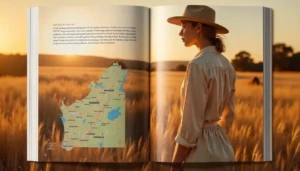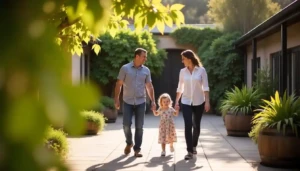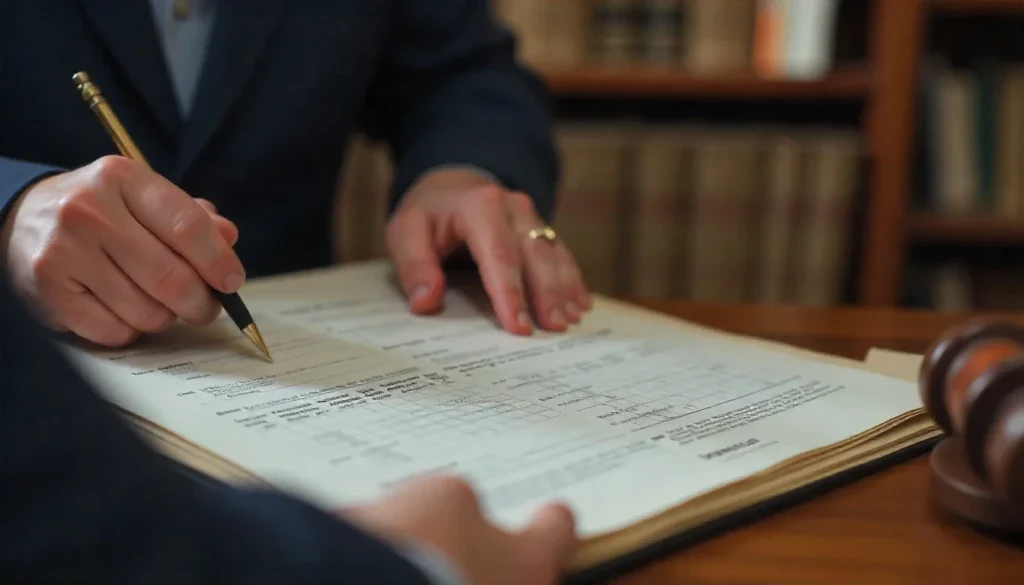Buying or selling property is one of life’s biggest financial decisions. Whether it’s a first home, a family farm, or a commercial site, the process is exciting but also full of legal detail. In New South Wales, that process is known as conveyancing.
In the Central West region of NSW, where property markets are diverse and local regulations vary, understanding conveyancing is crucial. From the heritage homes of Bathurst to the vineyards of Orange and the rural blocks around Forbes, each type of property has unique legal considerations.
This guide explains what conveyancing is, how it works, why it matters in Central West NSW, and how professional support can simplify the journey.
Central West NSW: A Region Full of Property Opportunities

The Central West region of New South Wales includes towns such as Orange, Bathurst, Cowra, Parkes, Forbes, and Mudgee, along with many surrounding rural communities. Each offers something different to buyers and investors.
Why Property Demand Is Rising
-
Lifestyle appeal – Many people are leaving Sydney and Canberra in search of a slower pace of life. Orange and Mudgee, for example, are popular for their wineries, food culture, and natural beauty.
-
Affordability – Property prices in regional towns are significantly lower than in major cities, allowing buyers to secure larger homes or lifestyle blocks.
-
Strong local economies – Agriculture, education, mining, and healthcare industries provide long-term stability.
-
Infrastructure growth – Projects such as the Parkes National Logistics Hub and upgrades to local hospitals and highways are drawing new residents and businesses.
-
Commercial investment potential – Bathurst and Orange, as regional hubs, are seeing increased interest from small businesses and developers.
Local Market Examples
-
Orange: Medical and education hubs have spurred demand for housing. Vineyard and lifestyle properties are especially sought after.
-
Bathurst: Known for heritage homes and student rentals, thanks to Charles Sturt University.
-
Cowra: Affordable family homes and rural land dominate the market.
-
Parkes: Attracting investors due to its strategic location in national transport networks.
-
Forbes: Agricultural properties and family farm transfers are common.
-
Mudgee: A hotspot for boutique wineries, tourism, and rural lifestyle blocks.
With so much activity, the legal side of property transfers becomes even more important.
⚖️ What Is Conveyancing?
Conveyancing is the legal process of transferring ownership of property from one party to another. It ensures that buyers receive clear legal ownership, sellers are properly paid, and both sides meet all obligations.
The Main Stages of Conveyancing in NSW
-
Pre-contract stage
-
Drafting or reviewing the contract of sale.
-
Checking disclosure documents.
-
Advising on inclusions, exclusions, and special conditions.
-
-
Pre-exchange stage
-
Conducting title searches.
-
Reviewing zoning and planning rules.
-
Ensuring finance and mortgage arrangements are secure.
-
-
Exchange of contracts
-
Both buyer and seller sign identical contracts.
-
The deposit is paid, and the agreement becomes binding.
-
-
Pre-settlement stage
-
Stamp duty is arranged.
-
Mortgage documents are finalised.
-
Adjustments (such as council rates and water charges) are calculated.
-
-
Settlement
-
Transfer documents are lodged with the NSW Land Registry.
-
The balance of the purchase price is paid.
-
Keys are handed over to the buyer.
-
-
Post-settlement
-
The buyer’s name is officially recorded on the property title.
-
The seller’s mortgage is discharged.
-
Tip: While some buyers consider “DIY conveyancing,” it is risky. Even a small error — such as missing an easement — can cause serious financial and legal problems later.
️ Conveyancing Services in Central West NSW
Different property types involve different legal considerations. Here’s how conveyancing applies across residential, commercial, rural, and family transfers.
Residential Conveyancing
Buying or selling a home can be exciting but also stressful. Conveyancing ensures that the transaction is smooth and legally sound.
Key considerations include:
-
Contract of sale terms
-
Strata reports (for units and apartments)
-
Title searches for restrictions or easements
-
Settlement coordination with banks and brokers
-
Stamp duty requirements
Example: A Bathurst family buying a heritage-listed home needed advice on renovation restrictions. A title search revealed heritage protections that required council approval for any external changes. Identifying this early saved time and avoided disappointment.
Commercial Conveyancing
Commercial property transactions often involve leases, zoning laws, and council approvals. These factors can directly impact a property’s profitability.
Typical services include:
-
Drafting and reviewing commercial leases
-
Handling subdivision or development approvals
-
Managing business asset transfers linked to property sales
-
Ensuring compliance with local council zoning rules
Example: In Parkes, an investor purchasing an industrial block discovered zoning restrictions that limited its use. A conveyancer flagged this, and negotiations allowed for appropriate adjustments before settlement.
Rural and Agricultural Conveyancing
Rural property is common in Central West NSW, and these transactions can be highly complex.
Unique aspects include:
-
Water access licences and irrigation rights
-
Easement and boundary agreements
-
Succession planning for family farms
-
Environmental or biosecurity compliance
Example: A Forbes farming family transferring property to the next generation required careful handling of water entitlements. Conveyancing ensured the licences were properly registered to the new owners.
Family and Estate Transfers
Sometimes property transfers are not driven by sales but by family circumstances.
Examples include:
-
Divorce and property settlements
-
Transfers through inheritance or probate
-
Gifting property to children or other relatives
-
Property held in trusts or self-managed superannuation funds (SMSFs)
Example: A family in Cowra inherited rural land. The conveyancing process ensured probate was correctly completed and the land title was updated without delays.
Areas Served in Central West NSW
Conveyancing practices must adapt to the needs of each town or region. Lyon Legal Services works across:
-
Orange – Vineyards, lifestyle homes, and urban expansion.
-
Bathurst – Heritage properties, student housing, and new estates.
-
Cowra – Affordable housing and farmland.
-
Parkes – Industrial and commercial growth.
-
Forbes – Agricultural transactions and farm successions.
-
Mudgee – Boutique estates and winery-related properties.
-
Blayney, Lithgow, Wellington, and surrounds – Mixed-use properties and rural holdings.
Why Professional Conveyancing Matters
Even though property transactions seem straightforward, hidden risks are common. Professional conveyancing helps to:
-
Prevent disputes by clarifying property rights.
-
Save money by identifying risks before contracts are signed.
-
Ensure compliance with state and local laws.
-
Simplify paperwork and deadlines.
-
Protect both buyers and sellers in case of disputes.
✅ Practical Checklist for Buyers and Sellers
For Buyers:
-
Arrange pre-approval for finance.
-
Review the contract of sale with a conveyancer.
-
Check zoning and planning restrictions.
-
Confirm water rights (for rural land).
-
Ensure insurance coverage begins on settlement day.
For Sellers:
-
Prepare the contract of sale early.
-
Gather compliance documents (e.g., building certificates).
-
Be upfront about easements or restrictions.
-
Clarify inclusions and exclusions (e.g., fixtures, fittings).
-
Plan for mortgage discharge before settlement.
❓ Frequently Asked Questions
How long does conveyancing take in Central West NSW?
Usually 4–6 weeks, though rural and commercial transactions may take longer due to council approvals or complex title issues.
Can I do conveyancing myself?
DIY conveyancing is possible but not recommended. A single missed detail (such as a caveat or easement) can create costly problems.
What documents are required?
Generally: the contract of sale, title deed, identification, mortgage documents, and any planning or zoning approvals.
What’s different about rural property transactions?
They often involve water licences, farm infrastructure, and succession planning — issues not found in standard residential sales.
Are conveyancing fees fixed?
Some firms offer fixed fees, while others charge by the hour. Transparency is important so you understand costs upfront.
Final Thoughts
Property transactions in Central West NSW come with unique opportunities and challenges. From vineyards in Orange to family farms in Forbes, each type of property requires careful legal handling to avoid risks and ensure a smooth transfer.
Conveyancing may seem like background paperwork, but it is the foundation of a safe and successful transaction. It ensures that ownership is properly transferred, obligations are met, and no hidden issues disrupt your plans.
If you are considering buying, selling, or transferring property in the Central West, take the time to understand the conveyancing process. Professional guidance can provide clarity, reduce stress, and protect your investment.


















